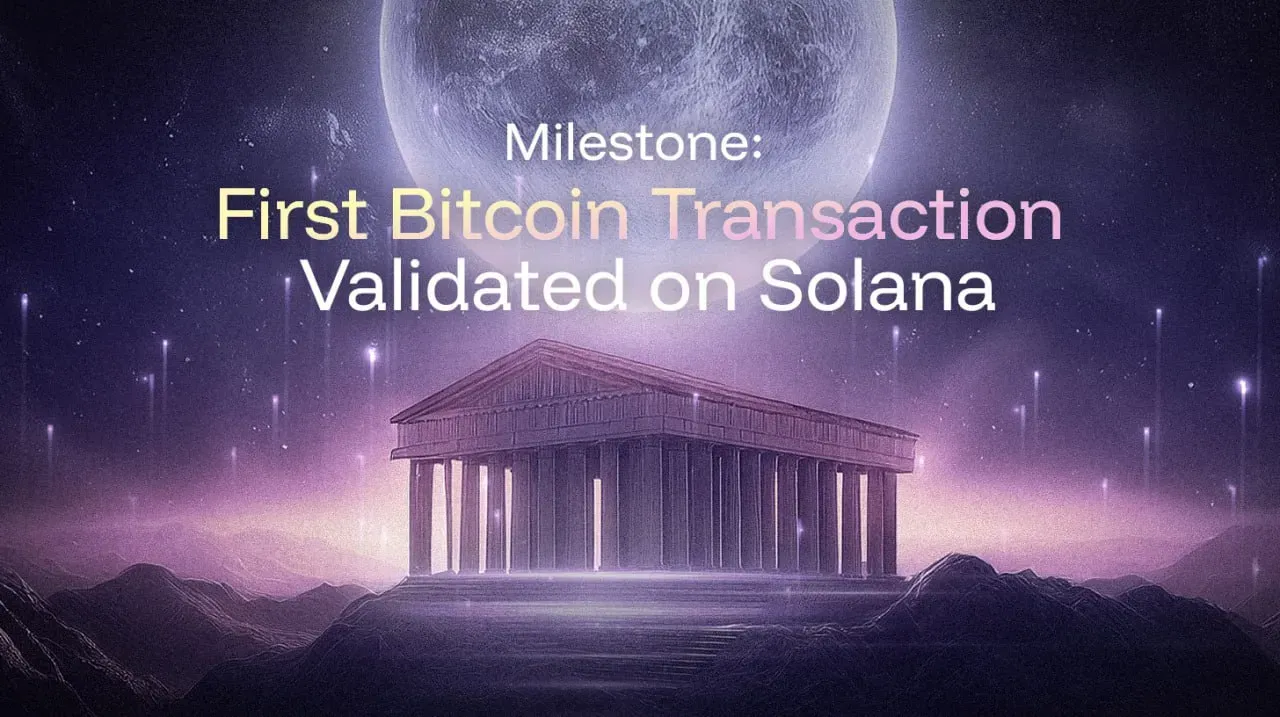
The journey toward seamless cross-chain liquidity has officially begun. After a year of intensive research and development, we are excited to announce a major milestone:
First Bitcoin Transaction Validated on Solana
On December 12th, Zeus Network achieved a historic milestone by successfully validating the first Bitcoin transactions on Solana using its infrastructure.
Through core infrastructures such as the ZeusNode Operator, ZeusNode Guardian, and ZPL working seamlessly together, the Zeus team has successfully pegged the first ZPL-asset on Solana by following these 5 steps:
𐓷 Step 1: Solana BitcoinSPV creates the Bitcoin Blockchain on Solana
𐓷 Step 2: ZeusNode Operator extends the Bitcoin Blockchain on Solana
- Step 2–1: Deposit to Hot Reserve Bitcoin
- Step 2–2: ZPL verifies deposit to Hot Reseeve transaction on-chain
𐓷 Step 3: ZeusNode Guardian locks Bitcoin
𐓷 Step 4: ZPL verifies the “Bitcoin LockToColdReserve” transactions
𐓷 Step 5: ZeusNode and ZPL work together to peg the first ZPL-asset on Solana
This milestone marks the first step in Bitcoin liquidity flowing onto Solana permissionlessly. By integrating other UTXO-based assets and open-sourcing the ZPL in the future, Zeus Network aims to welcome more dApps to expand the ecosystem collaboratively.
Future Roadmap
As of early December 2024, ZeusNode has entered its first Epoch, operating on the mainnet beta with Guardians activated and delegation thresholds met. The Genesis Epoch has a maximum capacity of 25 $BTC, laying the groundwork for cross-chain asset security and scalability.
The future roadmap includes:
Expanding Bitcoin and UTXO-Based Asset Integration
The roadmap aims to onboard 1% of Bitcoin liquidity onto Solana, supported by the continuous activation of Operators, Guardians, and Institutional Guardians. By mid-2025, ZeusNode is projected to manage 2,250 BTC, with integrations of other UTXO-based assets like Dogecoin (DOGE), Litecoin (LTC), and Kaspa (KAS).
Several Solana Layer 2 projects are also anticipated to join the ecosystem, further enhancing its scalability and capabilities.
Open-sourcing Zeus Program Library (ZPL)
Set for an open-source release in Q1 2025, ZPL will enable developers to build innovative applications on Zeus Network. Projects like APOLLO can leverage this infrastructure to introduce new ZPL-assets and further expand the decentralized application ecosystem.